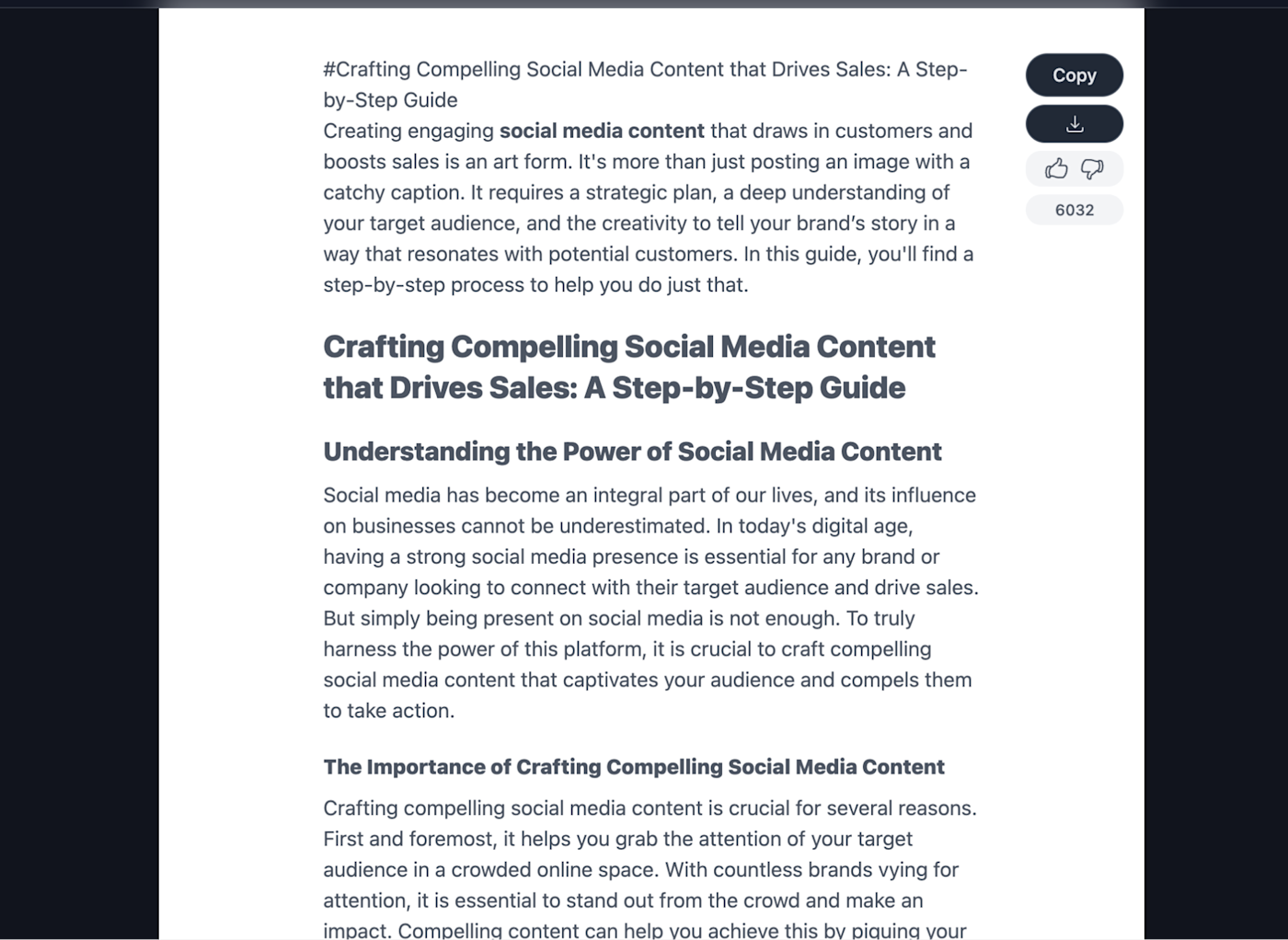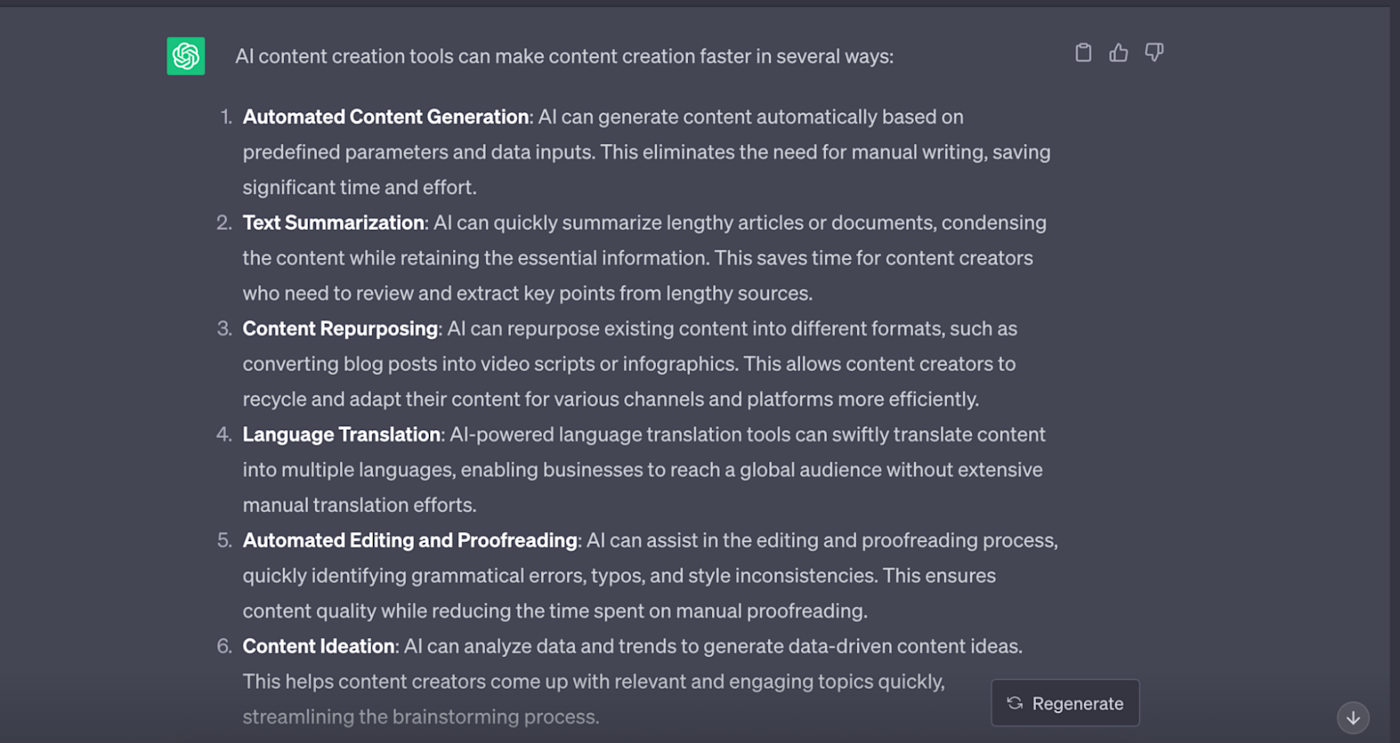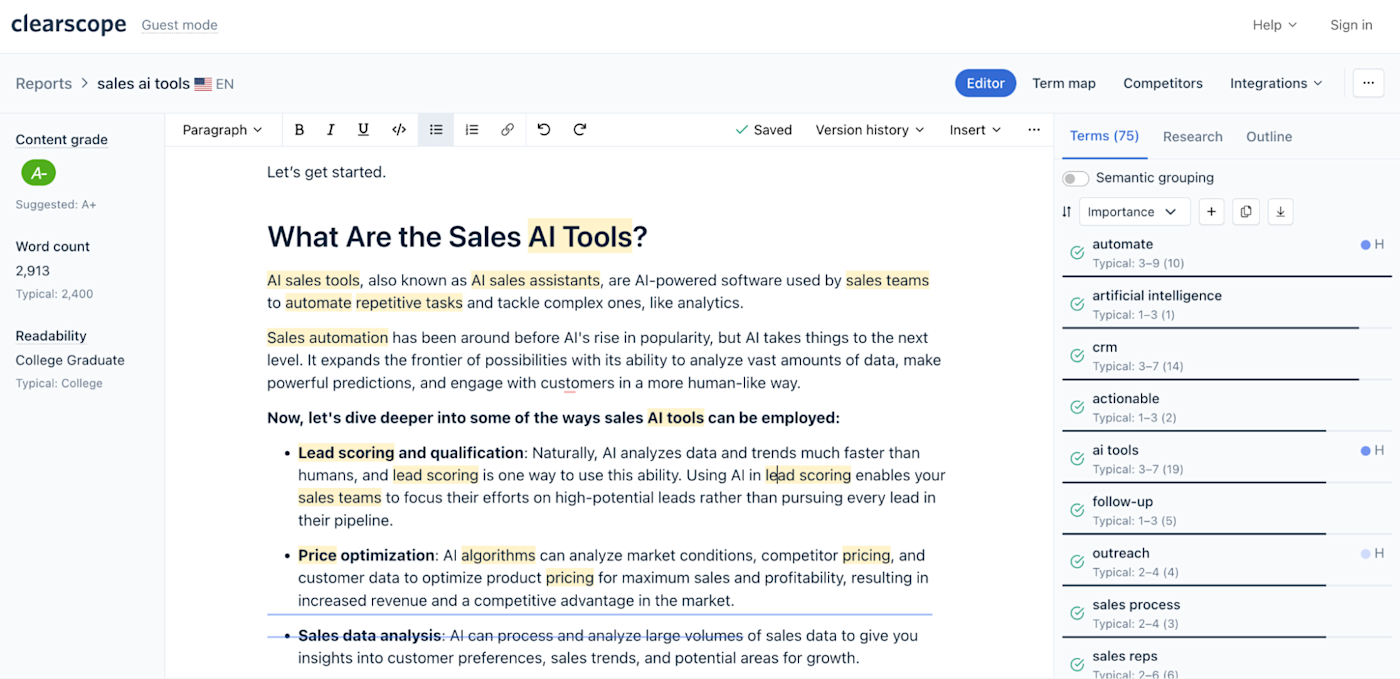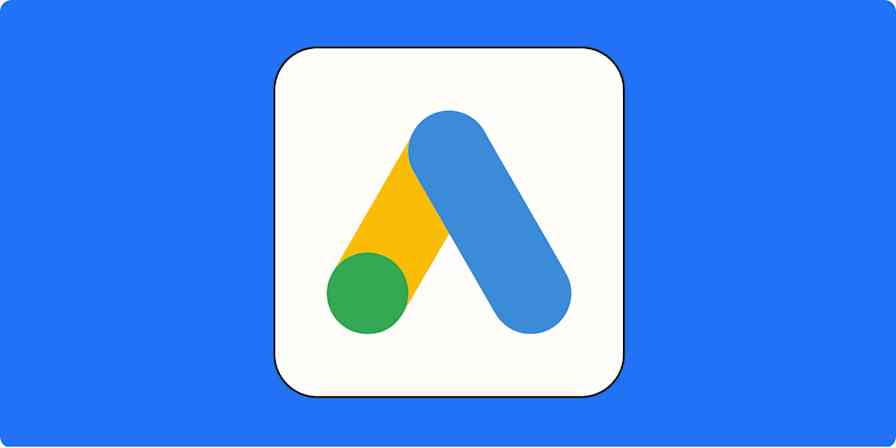If you're a content marketer, you have to pay attention to the roaring wave of AI crashing over the content marketing space right now. Brands are launching AI products left and right, while industry blogs are still awash with content about how AI is changing the game forever.
Ready or not, AI-supported content marketing is now a very real thing. And over at Close, we're not missing the boat. We recognized the winds of change and have seized this opportunity in a major way. To us, AI is a productivity booster for content marketers, and we've been continually experimenting with integrating these tools into our workflows.
The result? A staggering 75% transformation in our content marketing process, with productivity soaring to new heights. In this guide, I'm sharing our journey—our process, our outcomes—and how you, as a content marketer, can ride the AI wave to supercharge your own content marketing efforts too.
Understanding AI content creation today
Before we get into how we deploy AI in our content marketing processes, let's first understand what it is, the benefits, and of course, the drawbacks of this technology.
AI content creation involves using artificial intelligence programs to generate content. In recent years, many AI content creation tools have emerged, helping users generate written content such as articles, blog posts, social media posts, product descriptions, and more.
I understand your skepticism about using AI for content creation, and I've been there, too. But don't throw out the baby with the bathwater. Though AI lacks opinion, experience, and empathy, it has revolutionized our writing process. How? By cutting our content creation time by more than half.
Aside from faster content production, AI content creation also offers many advantages, including:
Tone adjustment: AIs can quickly adapt to your preferred tone. This helps you maintain a consistent editorial tone throughout content creation.
Improved SEO: AI writing assistants can suggest relevant keywords, headings, and content structures for better search engine rankings.
Content enhancement: AI can turn your article into high-quality, error-free content by proofreading, editing, and formatting it—a lot faster.
Cost efficiency: AI writing tools enable your existing writers to be more productive.
Content strategy insights: AI-generated data provides valuable analytics for data-backed content decisions and future planning. For example, Anyword (an AI writing tool) offers predictive analytics to gauge how likely it is your content will resonate with your target audience.
How we use AI content in content marketing at Close
To provide context, here's a brief overview of how we use AI in our content marketing process at Close.
We start by using RightBlogger, my very own AI suite of content tools, built to be exactly what this 12-year veteran content marketer wants in a platform like this. RightBlogger handles everything from keyword research to generating solid first drafts of an article, on through to optimization and promotion.
We then spend some time refining the title and the outline to perfection. Here's what an AI-generated outline looks like on RightBlogger.

Once the outline aligns with our goals, we command the AI to create the first draft. The screenshot below shows an example of an AI-generated first draft. All within a few minutes.

Since AI can make things up and present them as facts, I review the article for accuracy while rewriting it. If I encounter writer's block or need fresh ideas, I turn to ChatGPT for advice and suggestions. I'm always sure to carefully review ChatGPT's suggestions before incorporating them.
For instance, let's say I want to add a section on how AI accelerates content creation. ChatGPT quickly provides me with numerous suggestions, all proving accurate (in this particular case).

Next, I take the article to Clearscope for AI-powered SEO optimization.

With a solid first draft generated for me within five minutes, I can now spend between two and three hours working on an article that used to take me eight hours to write. (I share more of the details of the process in this guide.)
Note: it's essential to remain vigilant about plagiarism when using AI-generated content. Running the AI-written text through a plagiarism checker is a crucial step, as the content might inadvertently contain instances of plagiarism due to its widespread usage by others.
The impact of AI on our content marketing strategy
In recent months, we've worked with writers who write close to ten articles per month, as opposed to the initial capacity of three or four articles per writer per month—all thanks to an AI-supported content system we've implemented.
This assistance has enabled us to scale up our publishing velocity, and we've also seen an increase in our website traffic. But let's break this down a little bit.
Here are some ways AI has impacted our content marketing strategy:
Improved keyword research and analysis: Aside from identifying relevant keywords, long-tail phrases, and emerging search patterns, AI helps us gain a deeper understanding of user intent and search trends. This enhanced insight enables us to align our content with what users are actively seeking, leading to improved organic traffic and higher search engine rankings.
Generation of high-quality first draft content to scale publishing efforts: AI also helps us generate first drafts at lightning speed, and these drafts serve as valuable starting points for our writers. They now have more time to focus on refining and adding their unique touch to the content. This newfound efficiency allows us to tackle more projects, explore diverse content formats, and keep up with the demands of an ever-growing audience.
Staffing up with AI-assisted writers and an editorial team: To speed things up, we've integrated AI-assisted writers, who work hand in hand with AI-powered tools to streamline content creation. This integration allows us to leverage the strengths of AI and human creativity, resulting in content that is both AI-driven and emotionally relevant. As we expand our use of AI, we have also bolstered our editorial team to accommodate workflow changes. This expanded team ensures that AI-generated content aligns seamlessly with our brand voice and messaging.
More efficient content distribution and optimization at scale: AI has made content distribution easier for us. By helping us repurpose our content, it has become easier to tailor content for different platforms and reach a wider audience through email or social media platforms.
AI and our changing content creation workflow
With AI in the mix, our content creation workflow can be broken down into four stages. AI plays a part in expediting each one of them.
Here are the four stages of our content creation workflow:
1. Content ideation and topic generation
By inputting a target keyword into RightBlogger, we get a number of content idea suggestions. This process allows us to explore fresh angles and topics that may have been previously overlooked, enriching our blog with valuable insights for our audience.
2. First draft content creation
AI also empowers us to create the first draft a lot faster. We can choose to generate portions of the blog post, such as the introduction and conclusion, using AI tools, while crafting the remaining sections manually.
Alternatively, some AI tools, like RightBlogger, help us develop the first draft based on our generated outline. This flexibility allows us to balance AI-generated content and our creative input, resulting in a well-crafted and compelling piece.
Also, during the outline stage, AI tools like Clearscope and RightBlogger provide valuable insights by showing us frequently asked questions (FAQs) from Google's People Also Ask suggestions. This information helps us target featured snippets and optimize our content for enhanced search engine visibility.
3. Content editing and optimization
After receiving the AI-generated first draft, our content editing process commences. This critical stage involves reviewing all provided information as we refine the content for flow and accuracy. This is where we also add our own insights to ensure the content aligns perfectly with our brand's tone and messaging.
We eliminate any extraneous or inaccurate information to make the final piece concise and factually sound. Then we inject it with our opinions and add a human touch to make the content authentic and relatable.
Once we feel the article is up to snuff, we further enhance its chances on Google through SEO optimization. For this, we use Clearscope. By incorporating Clearscope's semantically related terms, we fine-tune the content to incorporate relevant keywords, optimize headings, and enhance the overall structure for higher search engine rankings.
4. AI-powered content analytics and SEO optimization
When our articles are published, we don't stop.
We rely on Clearscope for our SEO insights and performance tracking. It provides weekly SEO insights and recommendations for improving our overall ranking. By leveraging AI content analytics, Clearscope recommends actionable steps to enhance our content's performance, enabling us to stay ahead of competitors in search engine rankings.
The challenges and limitations of AI in content marketing
With that said, using AI in content marketing isn't all sunshine and rainbows. There are a few challenges and limitations to be aware of.
This section will highlight those challenges, limitations, and how you can overcome them.
Loss of human touch and creativity
As you know, AIs don't truly give information; they simply predict word combinations that make sense in a context. Despite their efforts to sound human, they often come across as robotic. This lack of empathy, storytelling, and connection can hinder your content's effectiveness.
To make your AI writing more human, let your writers know that their job isn't to take articles from the AI but to rewrite and humanize them by ingesting humor, empathy, and storytelling, where applicable.
Accuracy and reliability of ai-generated content
AI output can sometimes be misleading, biased, or factually incorrect. That's why it's vital for your writers to diligently review AI-generated content for accuracy. Human oversight is crucial to avoid credibility issues. Using AI without verifying its accuracy is an irresponsible way to incorporate AI into your content workflow.
Ethical, plagiarism, and AI detection concerns
AI's role in content marketing raises ethical questions surrounding transparency and fairness. That's not unexpected since clients expect human-generated work—unless explicitly stated otherwise. As content marketers, it's essential to be upfront with your clients about using AI-generated content.
Plagiarism is another major area of concern when using AI-generated content. AI may unintentionally produce material that closely resembles existing content, leading to plagiarism. Sometimes, the cause is that other users of AI may have previously published similar content they generated using AI.
To mitigate plagiarism risks, strictly implement stringent plagiarism checks and ensure that AI-generated content is distinctive and adds value without infringing on a copyright.
It's also crucial to follow Google's guidelines on AI-generated content, which state that "however content is produced, those seeking success in Google Search should be looking to produce original, high-quality, people-first content demonstrating qualities E-E-A-T."
Implications and changes in roles
The growing popularity of AI is causing a paradigm shift in the entire content marketing industry. While content marketing roles will continue to exist, there will be certain changes, and newer, alternative roles will emerge. It remains to be seen who will take center stage.
But these days, you'll see more roles like AI-assisted writers, AI editors, and prompt engineers. For instance, we hired an AI tool builder to build our cold email generator tool and my free AI article writer.
More AI text generators will also emerge. This development means AI tool developers will be more in demand. Pay attention to these roles and position yourself for the opportunities.
Future-proofing your content marketing (while using AI)
Don't be caught like a sitting duck while the AI revolution is in full swing. The artificial intelligence boom is just starting, and I expect to see plenty more new technologies in the coming months and years.
If you don't yet see how this is going to subtly change everything we're doing in content over the years to come, please take my word for it. Your success will be determined by how you position yourself for this opportunity.
As a content marketer, pay attention to these areas and see if you can experiment in your own way.
Emerging AI technologies and trends
Expect more interactive and immersive content experiences as AI integrates with emerging technologies like augmented reality (AR) and virtual reality (VR). AI software will also understand things better, write faster, and become more human-like.
Try to be in the loop all the time and experiment a lot with newer technologies. If you have the capability, you can get creative and build your own tools in this field.
Predictive content analytics and recommendation systems
Predictive content analytics and recommendation systems will evolve to become more intelligent and data-driven. AI-powered algorithms will analyze vast amounts of user data, including browsing behavior, content consumption patterns, and social interactions, to make highly accurate content recommendations.
These systems will proactively predict what content users will engage with next and help you deliver personalized content across different stages of the buyer's journey. Marketo already offers something in this area.
AI-powered chatbots and customer engagement
Thanks to advancements in natural language processing (NLP) and machine learning, AI-powered chatbots will become more human-like in their interactions. These chatbots will be better equipped to handle complex queries, provide personalized recommendations, and even understand and respond to user emotions. Additionally, chatbots may integrate with voice assistants, expanding their reach and accessibility.
By leveraging chatbots for real-time customer support, personalized content recommendations, and interactive conversations, you can create seamless and valuable customer experiences. Chatbots can also serve as virtual content assistants, guiding users through content discovery and enhancing overall customer satisfaction.
Augmented content creation workflows
AI will continue to augment content creation workflows, making them more efficient and data-driven. AI content generation tools will offer improved language generation, automated content curation, and enhanced content optimization based on real-time data analysis. This will empower content marketers to create high-quality content at scale, freeing up time for strategic planning and creativity.
To streamline content production, deliver data-driven insights, and create compelling narratives, now is the time to integrate AI into your content workflows. This will give you a competitive edge in the dynamic content landscape.
Let's wrap this party up, shall we?
The truth is that AI isn't slowing down, and those hesitant to adopt (and experiment with) these tools in their content strategy risk falling behind. Don't be the silent film actor at the advent of talkies. Don't be left behind.
Using AI in content marketing involves streamlining your workflow, gaining team buy-in, and setting the tone for AI adoption. Be vigilant about plagiarism, AI detection, and ethical concerns while staying updated on the latest developments. If you choose to adopt AI, do so thoughtfully and cautiously. Avoid following the crowd blindly, and understand the intricacies while doing due diligence to prevent costly mistakes.
Remember, it's not AI versus humans; it's AI and human collaboration in content marketing, and your approach to it will determine your success in this era.
AI content marketing FAQs
Still have some questions about AI in blogging and content marketing? I get quite a lot of them. Here are the answers to the most frequently asked questions about the role of AI in content marketing.
What is AI content creation, and how does it work?
AI content creation involves using software powered by artificial intelligence to generate content automatically. These AI tools operate through prompts, where you input specific information and commands, and they swiftly produce written content based on your input.
Can AI really replace human content creators?
Rest assured, AI is not on the verge of replacing human writers anytime soon. Despite significant advancements, AI still lags in replicating the creativity, empathy, and nuanced understanding that skilled human writers possess. Unless you're working for a content mill that values quantity over quality and overlooks audience engagement, AI isn't going to replace you.
What are the limitations of AI in content marketing?
AI in content marketing has several limitations. The most evident is its reliance on human prompts to function in the first place. Other challenges include loss of human touch and creativity, inaccuracies, lack of reliability, plagiarism, originality issues, AI detection concerns, limitations in understanding context and nuance, and limited creativity in problem-solving.
How will AI affect job roles in the content marketing industry?
Newer roles in content marketing will emerge, such as AI prompt engineers, AI content writers, AI content editors, and so on. But content marketing roles aren't going away. They might just be more augmented. And you should be prepared for the changes.
Ok, we covered a lot here, I know. Questions? Comments? Rotten tomatoes to throw my way? Find me on Twitter (are we calling it X now?) and YouTube 👋.
(And because I know you're thinking it: I did not use AI to write this post. This one's all me.)
Related reading:
This was a guest post by Ryan Robinson, Head of Content at Close and co-founder of RightBlogger. Want to see your work on the Zapier blog? Read our guidelines, and get in touch.






